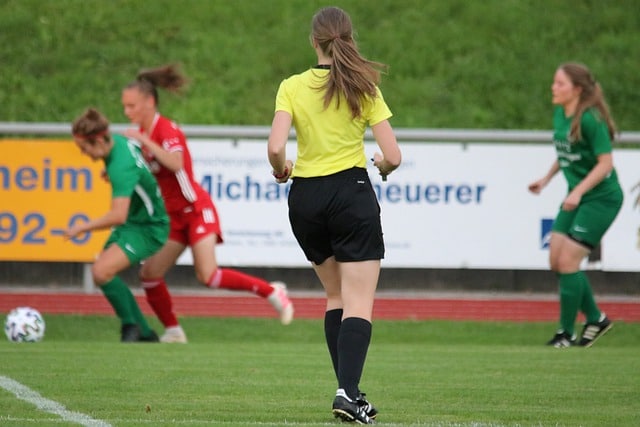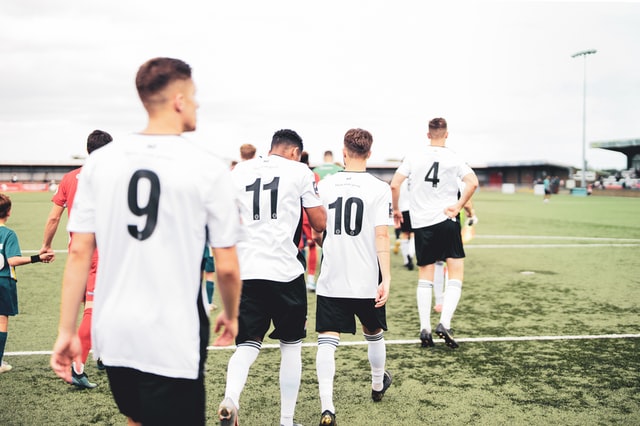The concept of extra time is very common among some of the most popular sports around the world including soccer.
However when it comes to soccer, the term extra time can be confusing to new fans as it can refer to 2 different types of match duration extensions.
In this article, you’ll get to know the difference between extra time and stoppage time, and you will get an idea about how each of them works.
What is the difference between extra time and stoppage time in soccer?
Extra time in soccer is the time added after the game ends in a draw. Not all soccer games can end in a draw, and the ones that can’t will require the competing teams to play extra time in case the original game time ends in a draw.
So that’s what the term extra time refers to, but what about the stoppage time?
Well, the stoppage time is the few minutes added to each of the 2 halves of the soccer game and it is intended to compensate for the time wasted during each of these halves.
In other words, the stoppage time is just the compensation to the time lost during the game, while the extra time is the time added after the game ends in a draw to ensure that there is a winner.
It is also worth noting that the extra time itself also has stoppage time that compensates for the time wasted during the extra time. If things got confusing after reading this, just don’t worry about it, you’ll get the idea after reading through this article.
But before we dive into each of these 2 soccer concepts in more detail, I would like to mention a quick note for our basketball fans.
If you are a basketball fan who has never watched a soccer match before, then you might assume that the match timer stops when the ball goes out of play in soccer which makes the stoppage time a useless concept.
But this is not the case in soccer. The soccer clock doesn’t stop at all until the referee ends the current half of the game. No matter what happens, the clock timer keeps ticking all the time, which is why the stoppage time is needed to compensate for some of the time lost during each of the game halves.
With that said, it is time to dive deeper into how each of these time extensions work in soccer. I’ll start with the stoppage time since it is usually what new soccer fans refer to when they mention the words “extra time”, but if you’re here to only learn more about the actual extra time in soccer, then you can skip this part of the article.
How does stoppage time work?
Every soccer game consists of 2 halves, and whenever each one of these halves ends, the referee can add a few more minutes that are called the stoppage time. These minutes are added to compensate for the time lost during the corresponding half of the game.
You might already know this part, but the part that might be confusing to the new soccer fans is how the duration of the stoppage time is determined.
In general, there isn’t a strict rule that determines the exact stoppage time that should be added at the end of each soccer half. It is up to the referee to decide how much stoppage time they want to add after the half ends.

In other words, if you bring 10 referees and ask each one of them how much stoppage time the current half gets when it ends, you will most probably get a few different answers.
That is because the main referee of the game can pick whatever number of extra minutes they want based on a number of factors and based on their intuition.
But what are these factors exactly?
List of the factors that contribute to the stoppage time in soccer:
1- Substitutions
Substitutions can waste up to a few minutes when they happen. Since the soccer field is large, it takes time for the player substituted off to leave the field.
In fact, substitutions are sometimes used as a tactic by the winning team to waste the last remaining minutes of the game. During these kinds of substitutions, the player substituted tries to walk as slowly as they can to waste as much time as possible.
However, the referee will keep the number of substitutions in their mind and they will increase the stoppage time based on how much time they think was wasted during these substitutions.
In general, the time added as stoppage time is less than the real time wasted during the game, which is one of the main reasons why players still try to waste time during substitution to this day in soccer.
If you are interested, you can read more about the reasons why soccer coaches make late substitutions by clicking here.
2- Injuries
If a player falls on the ground and they take too much time to either get back up or leave the field, then the referee usually keeps a record of the wasted time and tries to add some of it at the end of the half (i.e., increase the stoppage time).
Like substitutions, faking injuries to waste time is used as a tactic in soccer, and this tactic has given soccer a bad reputation among the groups of people that don’t know much about soccer in general.
There is a full article about why soccer players act dramatically that you can check out by clicking here.
3- Delays in set-pieces
Delayed set-pieces are another factor that the main referee of the match takes into consideration when deciding how much stoppage time should be added.
If you don’t already know, a set piece is an action taken by a soccer player to get the ball back into play. Kick-offs, corner kicks, free kicks, and throw-ins are all examples of set pieces.
Sometimes, soccer players that belong to the winning team try to delay the set-pieces as much as they can to waste the opponent’s remaining time to score.
This is very common among goalkeepers. The goalkeepers of the winning team usually try to take as much time as they can to perform the goal kick, and they sometimes get a yellow card just for trying to waste too much time.
By now, you get the point. Any attempt at wasting the game’s time will be considered as a factor by the referee when they decide the stoppage time.
4- The game score
The final factor that I want to discuss here is the game score. If there was a lot of time wasted during the game, but one of the teams is winning by a large goals difference, then the referee might decide to reduce the stoppage time significantly since it will be practically impossible for the losing team to turn the table in a few extra minutes.
But not all referees do that. As mentioned before, it’s up to the referees of the game to decide how much time they want to add to the game
To sum the whole section up, the stoppage time is the time added at the end of each half to compensate for the time lost during the game, and the number of minutes added is determined by the referee.
A quick question I want to answer before moving on to “extra time” is this:
Is there a limit to the stoppage time?
Stoppage time doesn’t have an upper limit. The referee can pick whatever number of minutes they want to add as a stoppage time. However, it is extremely rare that the stoppage time is set to more than 7 minutes.
Usually, it is somewhere between 1~4 minutes and it can go up depending on how much time was wasted.
It is also worth noting that sometimes, the referee doesn’t end the game after the stoppage time ends. If a lot of time was wasted during the stoppage time, then the referee might decide to extend the stoppage time even more.
That’s all of what you need to know about stoppage time, but what about the extra time? Well, that’s what the rest of this article is for.
How does extra time work in soccer?
Extra time in soccer is the 30 minutes that are added to the game after the game ends in a draw. The 30 minutes are divided into 2 halves each 15 minutes long, and these halves are treated exactly as the original 2 soccer halves of the game.
In other words, if a game can’t end in a tie, but the game reaches the end of the official time and no team has managed to win the game yet, then an extra 30 minutes will be added to the game.
If the teams don’t manage to finish the game within the extra time, then the game stops and penalty shots end up determining the winner of the game.
Is soccer extra time sudden death?
No, there is no sudden death in extra time anymore. The full 30 minutes will have to be played no matter how many goals are scored during these 30 minutes.
This wasn’t always the case though. There was a time when a rule named “The golden goal” was introduced to soccer.
The idea was that the team who scores first during the extra time immediately wins the game.
The rule was introduced to encourage the teams to play intensely and try to score as fast as they can, but it ended up causing the exact opposite effect.
Teams ended up being extremely cautious and they acted defensively during most of the extra time of the game.
For this reason, the rule was canceled and the sudden death rule in soccer was no more.
Today, the extra time is played like regular match time. The only difference is the duration and nothing more.
With that said, we have reached the end of this article. If you would like to read more, here is a list of some articles that you might find interesting:

